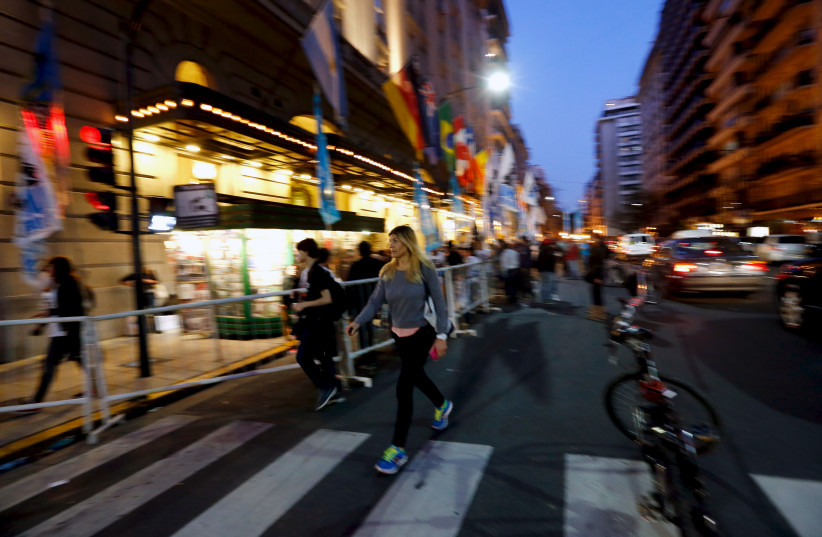(JTA) – The city of Buenos Aires will rename a major subway station in honor of Raquel Liberman, the Jewish woman who played a critical role in the dismantling of an infamous Argentine sex-trafficking ring and in the move to outlaw prostitution in the country.
According to La Nación, the Callao station in the upscale Recoleta neighborhood will soon be known as Callao – Raquel Liberman with new signage that tells the story of the sex worker who stood up against the Jewish organized crime network known as Zwi Migdal.
Born in what is now Ukraine in 1900 and raised in Poland, Liberman immigrated to Buenos Aires in 1922, joining a wave of Jewish immigration from Eastern Europe to South America. She arrived with two small children, hoping to reunite with her husband who immigrated ahead of them and start a new life. But by the time her ocean liner docked in Buenos Aires, her husband had become sick with tuberculosis. He died a few months later.
The only option
Becoming a sex worker was the only option for the 23-year-old who needed to support herself and her children. She worked in a brothel under Zwi Migdal as one of hundreds of prostitutes controlled by the group. As in much of the rest of the world, the prostitution business was legal in Argentina as long as the women participated voluntarily. But Zwi Migdal would deceive women, typically by luring them from Eastern Europe under false promises of employment or marriage and then ensnaring them in sex work once they arrived in Buenos Aires.
Eventually, Liberman saved up what she thought would be enough money to buy freedom from her pimps, but they refused to grant her independence. She faced threats, harassment and theft as she tried to establish her life anew.

In 1929, Liberman turned to the police and complained about Zwi Migdal. A crusading police chief and criminal magistrate took up her case and launched a crackdown that included arrests and deportations of hundreds of Zwi Migdal members and the confiscation of property belonging to the organization. A much-publicized trial brought an end to the criminal network in 1935, the same year that Argentina banned prostitution.
A cache of letters and documents belonging to Liberman that surfaced in 1996 helped galvanize a wave of historians, filmmakers and novelists who would explore Liberman’s story and its historical context.
“Many historical investigations have given an account of the life of Raquel Liberman who was brought to our country a victim of deception and prostitution,” said Patricia Vischi, a member of Buenos Aires legislative council, who promoted the drive to rename the station. “She courageously faced the most powerful human trafficking network in Argentina.”
In 2020, the city recognized Liberman with a plaque dedicated to her memory placed on the street close to where a brothel she worked in was located, in the Jewish neighborhood of Once.
